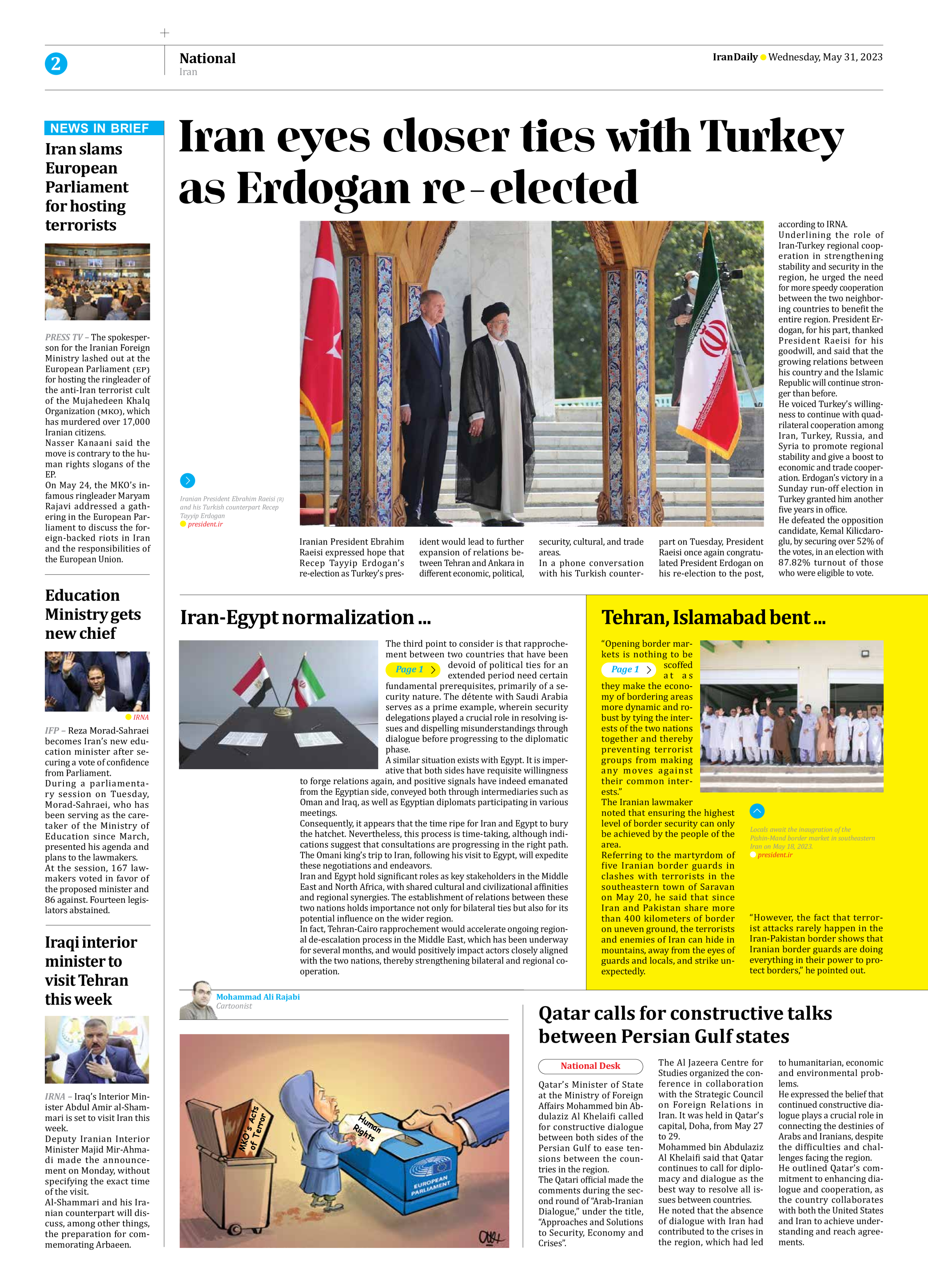
Copy in clipboard...
Iran-Egypt normalization ...
The third point to consider is that rapprochement between two countries that have been devoid of political ties for an extended period need certain fundamental prerequisites, primarily of a security nature. The détente with Saudi Arabia serves as a prime example, wherein security delegations played a crucial role in resolving issues and dispelling misunderstandings through dialogue before progressing to the diplomatic phase.
A similar situation exists with Egypt. It is imperative that both sides have requisite willingness to forge relations again, and positive signals have indeed emanated from the Egyptian side, conveyed both through intermediaries such as Oman and Iraq, as well as Egyptian diplomats participating in various meetings.
Consequently, it appears that the time ripe for Iran and Egypt to bury the hatchet. Nevertheless, this process is time-taking, although indications suggest that consultations are progressing in the right path. The Omani king’s trip to Iran, following his visit to Egypt, will expedite these negotiations and endeavors.
Iran and Egypt hold significant roles as key stakeholders in the Middle East and North Africa, with shared cultural and civilizational affinities and regional synergies. The establishment of relations between these two nations holds importance not only for bilateral ties but also for its potential influence on the wider region.
In fact, Tehran-Cairo rapprochement would accelerate ongoing regional de-escalation process in the Middle East, which has been underway for several months, and would positively impact actors closely aligned with the two nations, thereby strengthening bilateral and regional cooperation.







